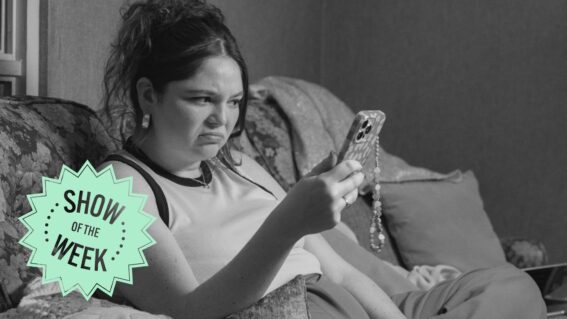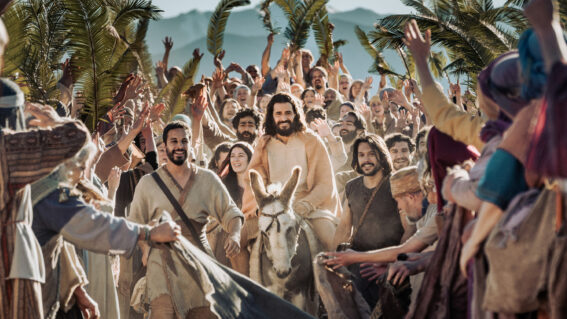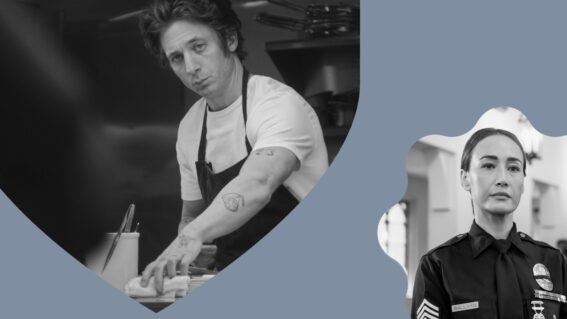Local drama continues to up its game with NZ series The Sounds
And another reminder why the qualifier “good, for NZ” no longer applies.
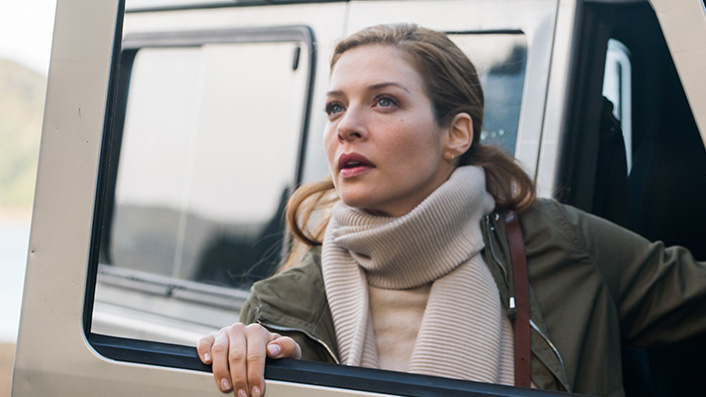
The beauty of New Zealand’s Marlborough Sounds sets the scene for missing person mystery The Sounds, now streaming on Neon. Dominic Corry explains the show’s hook and why the qualifier “good, for NZ” no longer applies with local telly.
New Zealand’s forebodingly picturesque landscape has long proved enticing for both international and local productions, and some of our most quietly ominous locations are artfully exploited in the Canadian/New Zealand co-production The Sounds, a new mystery thriller series set in the Marlborough Sounds.
See also:
* New release movies & series on Neon
* Everything coming to Neon in September
Created by internationally successful Kiwi novelist Sarah-Kate Lynch (who also worked on New Zealand shows such as 800 Words and The Bad Seed), The Sounds is another reminder of the degree to which local drama has upped its game in recent years, building on those two shows mentioned, as well as other productions such as Fresh Eggs, The Gulf and One Lane Bridge, to the point where the qualifier “good, for NZ” no longer applies. Our stuff now competes with the best, and The Sounds exudes a crisp polish that represents the new normal.
Kiwi actor Matt Whelan, who went from Go Girls to Narcos, plays Tom Cabbott, the eldest son of a prominent Vancouver business family seeking to make his mark at the bottom of the world by bank-rolling a salmon-farming enterprise in the sleepy Malborough Sounds town of Pelorus.
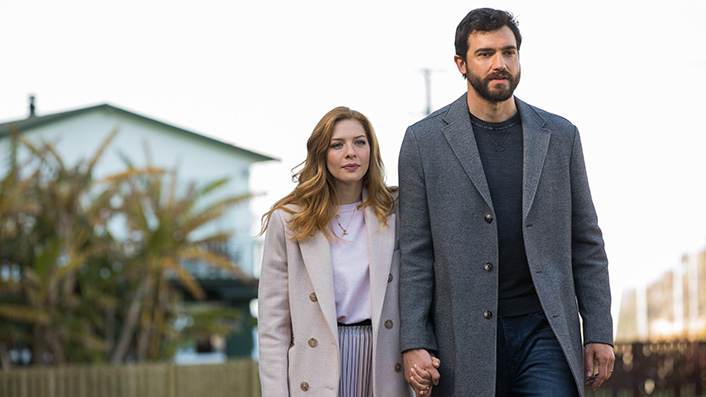
The series begins with Tom welcoming his wife Maggie (Canadian actor Rachelle Lefevre, a familiar face for everything from the first few Twilight movies to the Martin Henderson-starring medical drama Off The Map) to Pelorus to celebrate the signing of the deal for the salmon-processing plant.
Most of the residents of Pelorus are thrilled with the job-creating venture, but some, including local activist Pania (Vanessa Rare, Fresh Eggs) think it’s a bad thing and isn’t afraid to say so to Tom and anyone else who’ll listen.
Following a party marking the deal-signing, Tom and Maggie set off on his plush yacht (named Maggie, natch) to take in the sea-drowned valleys that make up the Sounds. The next day, Tom goes on a morning kayak off the boat, but fails to return. As the length of his disappearance grows, Maggie is thrust into an increasingly nightmarish scenario in an unfamiliar setting.
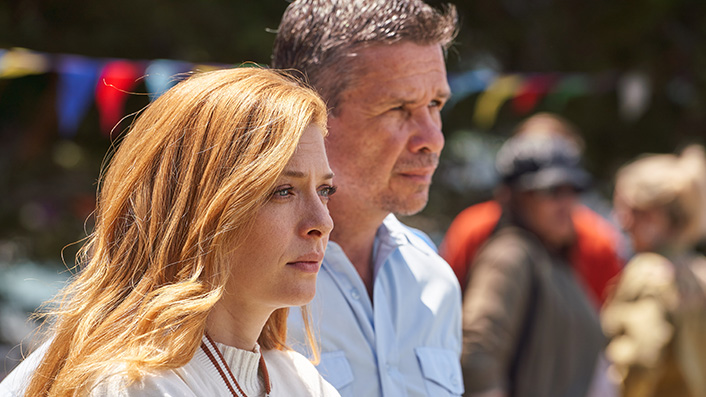
Pelorus cop Jack McGregor (Aussie NRL star-turned actor Matt Nable from Riddick and Arrow) proves friendly, as do some other locals played by welcome Kiwi actors such as Tandi Wright (800 Words) Morgana O’Reilly (Housebound, Neighbours) and Tainui Tukiwaho (Step Dave), all of whom support Maggie as the search for Tom continues. But Maggie remains unsure of who to trust and senses things aren’t as rosy with the salmon venture as Tom has made them out to be.
Then there’s Tom’s family back in Canada, including his powerful father Frank (played by Kiwi acting legend John Bach, who starred in the late ’90s detective series Duggan, which also took place in the Marlborough Sounds) and his younger brother Nate (Josh McKenzie from Filthy Rich), currently the CEO of the family business.
These are but some of the complicated relationships set up in the first episode, during which we also get a hint of marital strife between Tom and Maggie, and a strong indication that we may not have seen the last of Tom.
Although Pelorus is for the most part portrayed by Whangaroa in the Far North, gorgeous aerial establishing shots of the Malborough Sounds set a strong tone for the series. There is much intrigue from the get, and it’s refreshing that the series shies away from the procedural, Broadchurch-inspired format that inspires too many contemporary dramas.
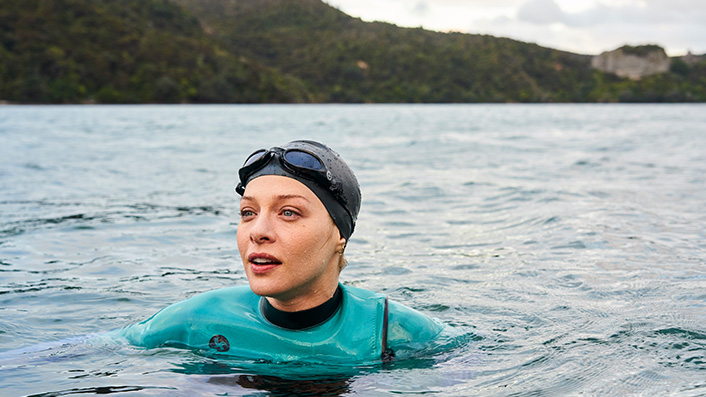
Twisty murder investigations aren’t common in New Zealand, and although The Sounds takes place in gently heightened reality of TV drama, it centres around various situations that are familiar in our fair country and is all the more relatable for it: there’s the business versus the environment debate, small-town unemployment, overseas investment and people going missing in beautiful locations.
Indeed, a disappearance in the Marlborough Sounds can’t help but recall the Ben Smart/Olivia Hope case from 1998, but The Sounds does not appear to have been inspired by that incident, and concerns markedly different circumstances. But still, it comes to mind.
Lynch and her collaborators’ greatest achievement with this show is that they’ve made the storytelling look effortless. We produce a lot of great stuff here, but you can often perceive the strain under which some productions have come to life. All screen narrative is difficult, but The Sounds presents with an elevated commercial sheen that renders the huge amount of work that went into it invisible.
I’ve only seen one episode, but I’ll definitely be coming back for more. It makes a strong case for the maturation of local drama and sets up several layers of mystery that I am going to need to see.







